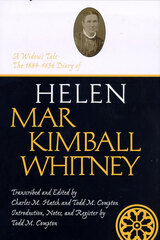
That Nikolai Nikolaevich Strakhov was always classified by his contemporaries as a "conservative" gives his life a special significance in Russian intellectual history. The myth of radical historiography has made him a victim of purposeful historical forgetfulness. In this respect he shares the fate of men like Aksakov, Danilevsky, and Katkov, indeed, of most Russian conservatives. Yet it is misleading to place him in such politically conservative company.
Strakhov was born in 1828, the same year as his great friend Leo Tolstoy and his great opponent Nikolai Chernyshevsky. His adult life spans the entire second half of the century. As a philosopher, literary critic, and journalist, he was involved in most of the major intellectual controversies of his time. He was personally close to and a major influence on the giants of the period: Tolstoy, Dostoevsky, Vladimir Solovev. One of the most penetrating thinkers of nineteenth-century Russia, he engaged in serious and often bitter debate with the leading intellectuals of Russian radicalism: Chernyshevsky, Pisarev, Mikhailovsky.
In this first full-length intellectual biography in any language of Strakhov, Linda Gerstein provides a guide both to the individual and to the amazingly complex picture of Russian intellectual life in the nineteenth century. Strakhov's concerns, she shows, were the major concerns of his era: positivism, nihilism, materialism, the woman question, Darwinism. In all these matters he displayed a consistent intelligence and independence, unusual in that time of intellectual faddishness, that make him a rewarding figure to study.

Mormon culture has produced during its history an unusual number of historically valuable personal writings. Few such diaries, journals, and memoirs published have provided as rich and well rounded a window into their authors' lives and worlds as the diary of Helen Mar Kimball Whitney. Because it provides a rare account of the widely experienced situations and problems faced by widows, her record has relevance far beyond Mormon history though.
As a teenager Helen Kimball had been a polygamous wife of Mormon founder Joseph Smith. She subsequently married Horace Whitney. Her children included the noted Mormon author, religious authority, and politician Orson F. Whitney. She herself was a leading woman in her church and society and a writer known especially for her defense of plural marriage. Upon Horace's death, she began keeping a diary. In it, she recorded her economic, physical, and psychological struggles to meet the challenges of widowhood. Her writing was introspective and revelatory. She also commented on the changing society around her, as Salt Lake City in the last decades of the nineteenth century underwent rapid transformation, modernizing and opening up from its pioneer beginnings. She remained a well-connected member of an elite group of leading Latter-day Saint women, and prominent Utah and Mormon historical figures appear frequently in her daily entries. Above all, though, her diary is an unusual record of difficulties faced in many times and places by women, of all classes, whose husbands died and left them without sufficient means to carry on the types of lives to which they had been accustomed.
READERS
Browse our collection.
PUBLISHERS
See BiblioVault's publisher services.
STUDENT SERVICES
Files for college accessibility offices.
UChicago Accessibility Resources
home | accessibility | search | about | contact us
BiblioVault ® 2001 - 2024
The University of Chicago Press









